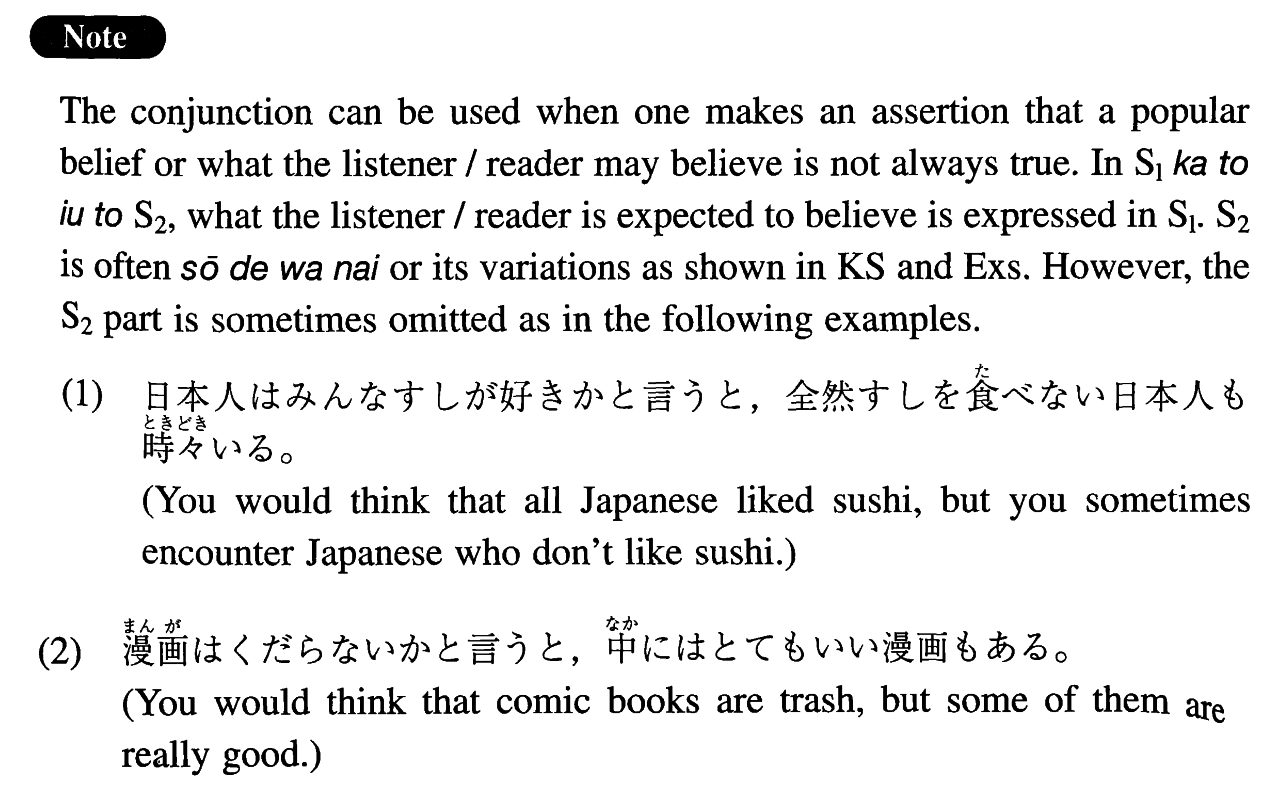
Example sentences
Formation
| (i) ~{V/Adjective い} informal | かと言うと、S | |
| {話す /話した} かと言うと | You would think that someone talks/talked but ~ | |
| {高い /高かった} かと言うと | You would think that something is/was expensive but ~ | |
| (ii) {Adjective な stem/ Noun} | {Ø/だった} かと言うと、S | |
| {静か /静かだった} かと言うと | You would think that something is/was quiet but ~ | |
| {先生/先生だった} かと言うと | You would think that someone is/was a teacher but ~ |
